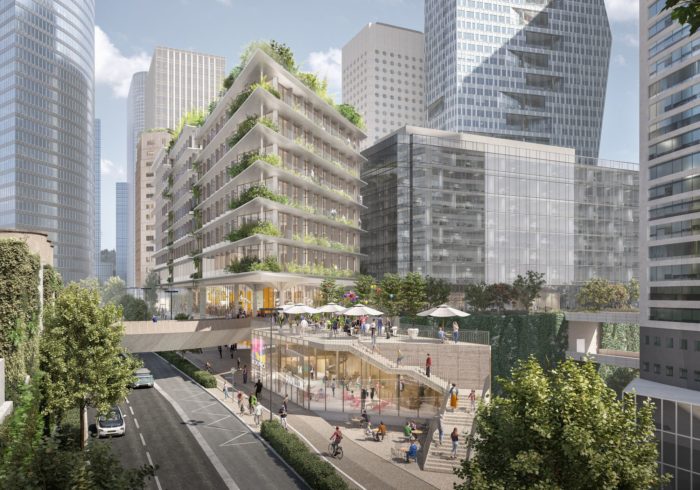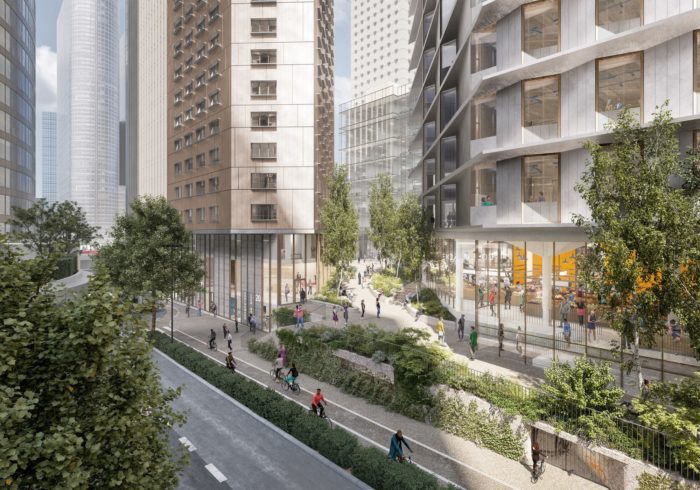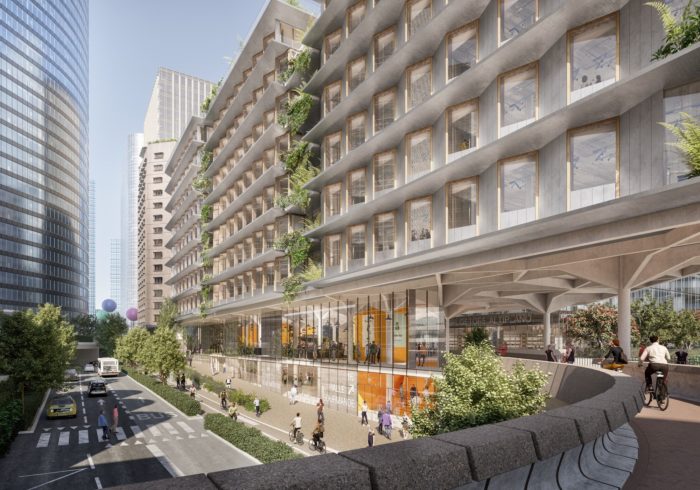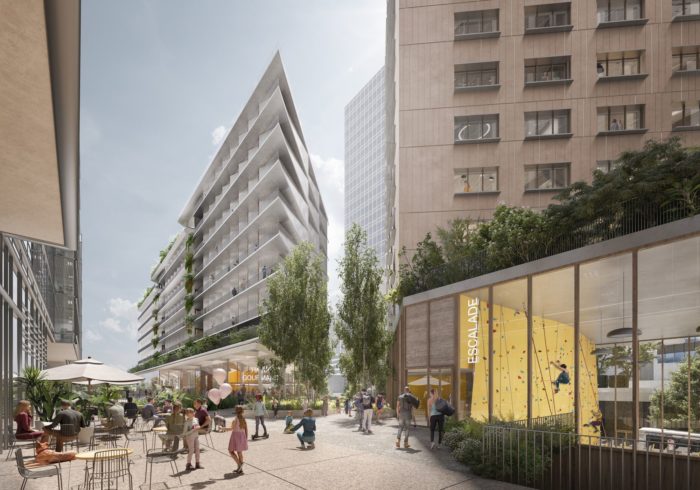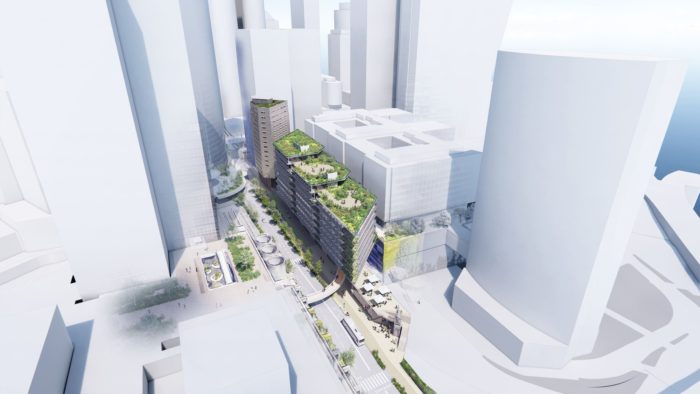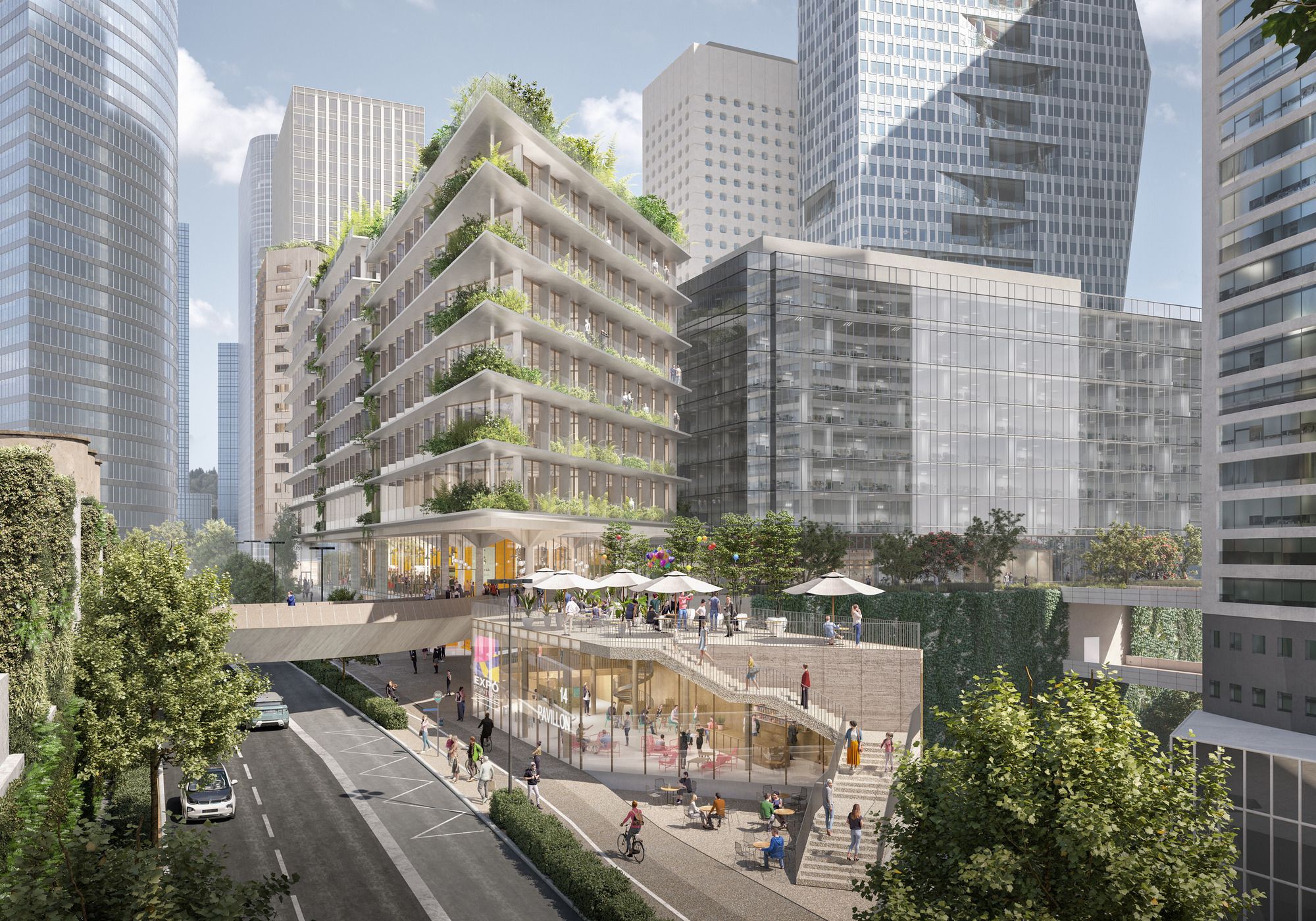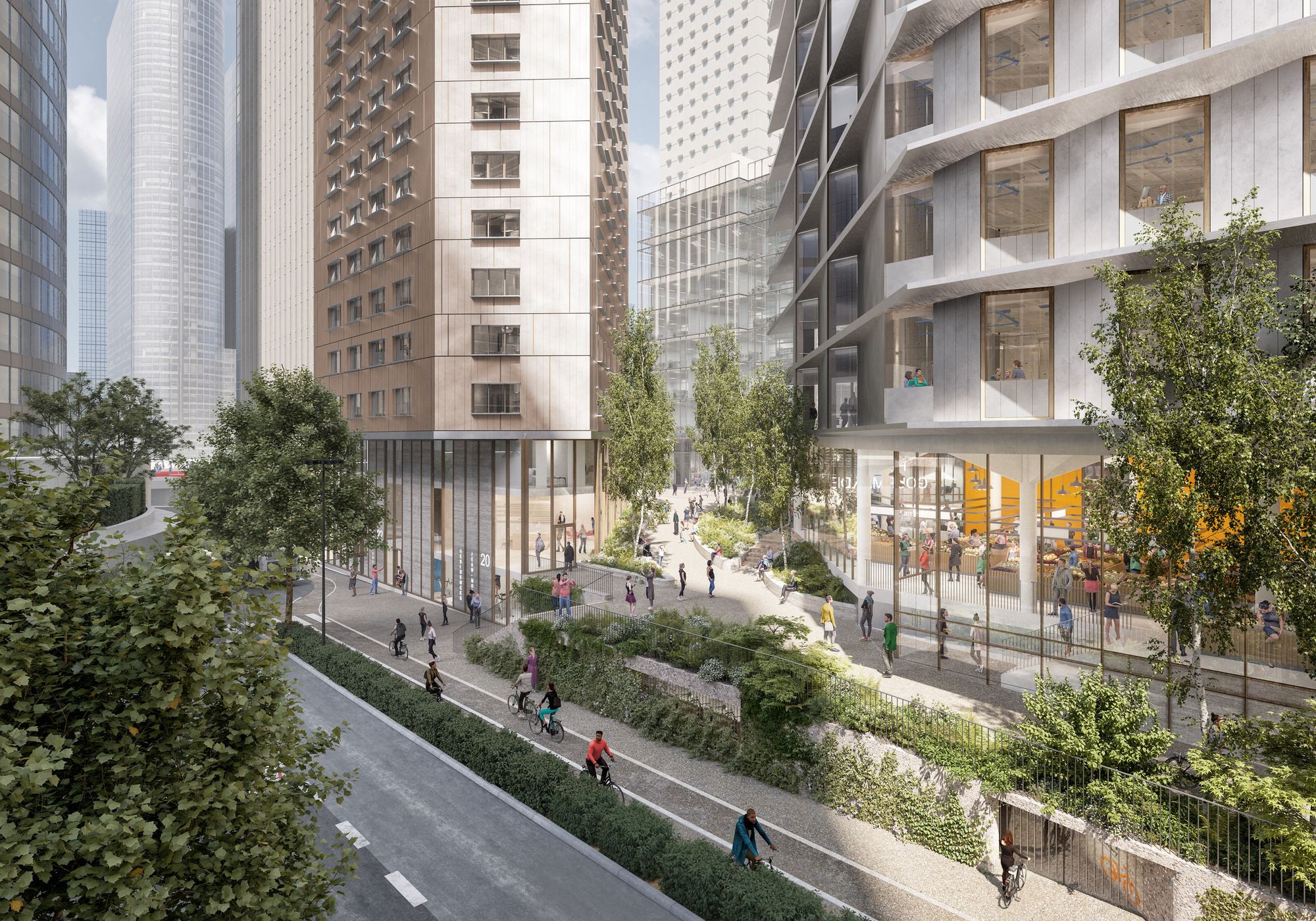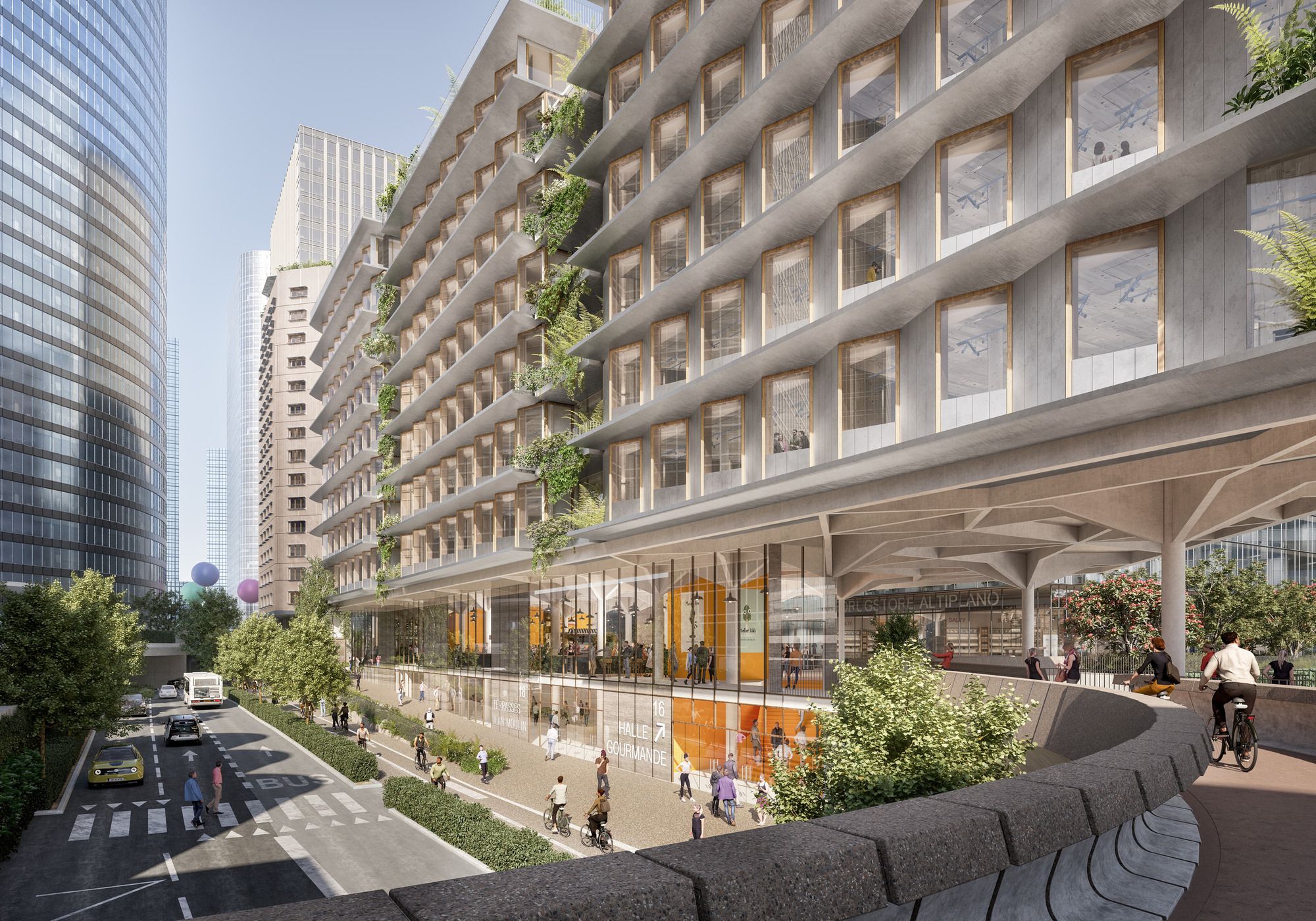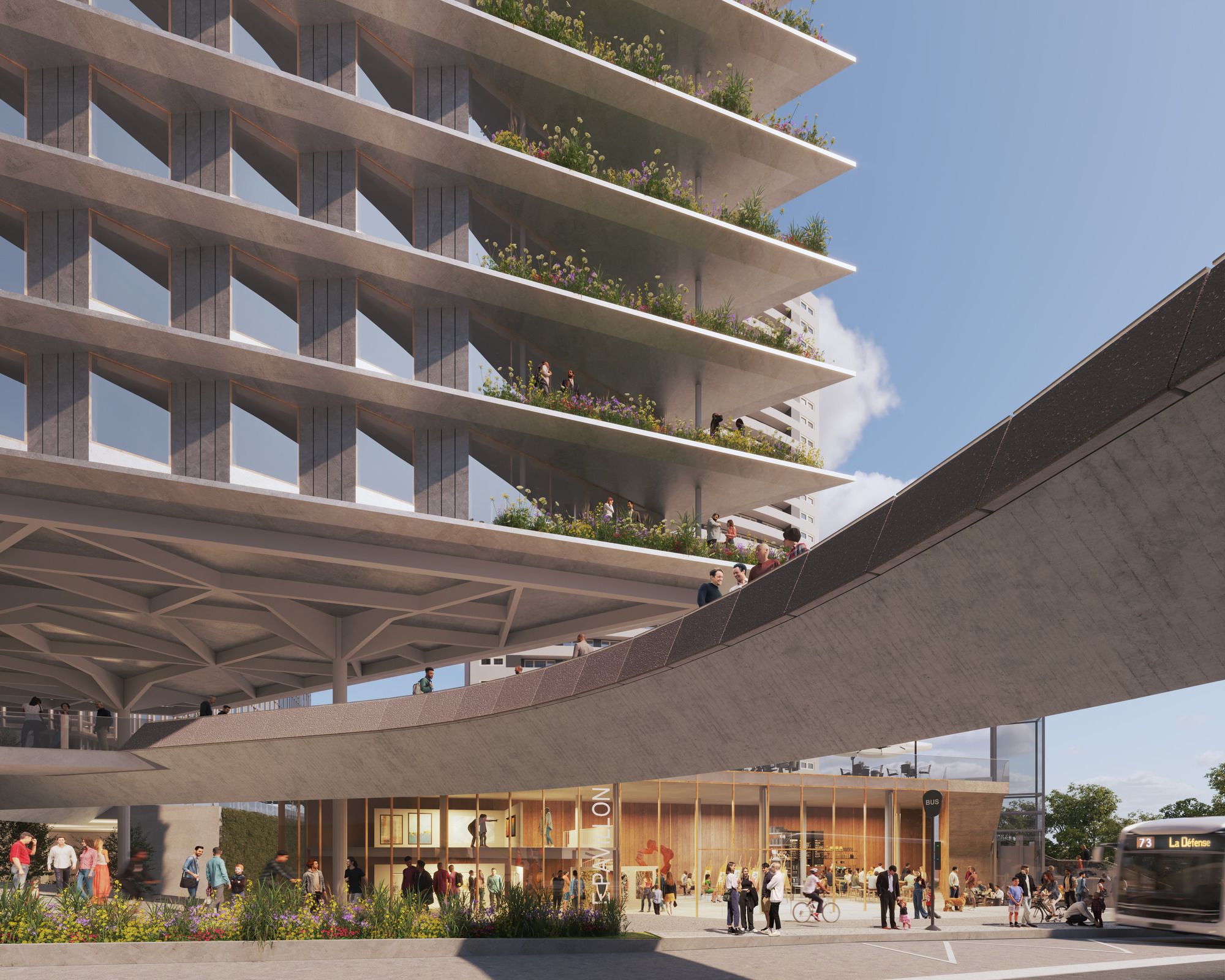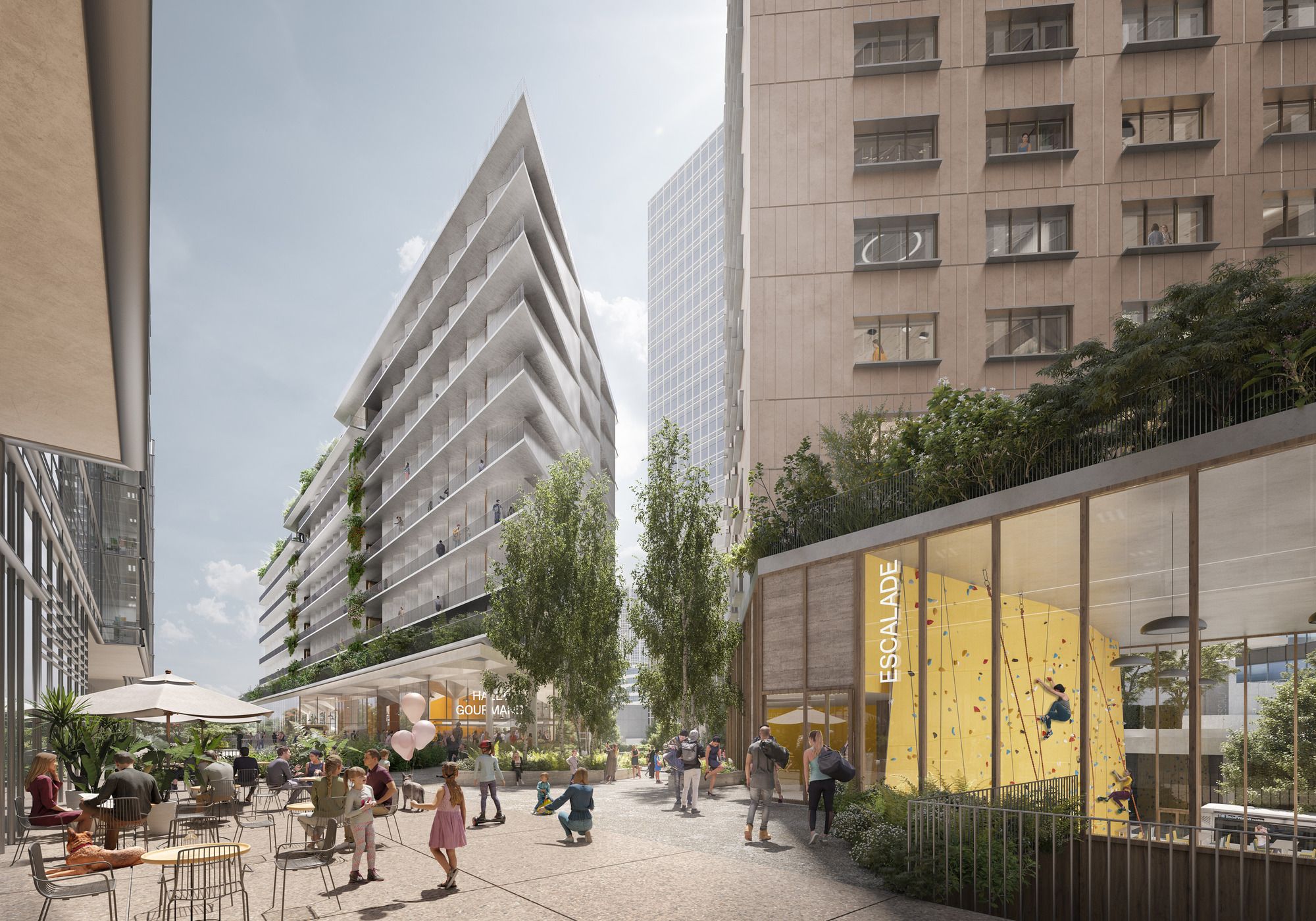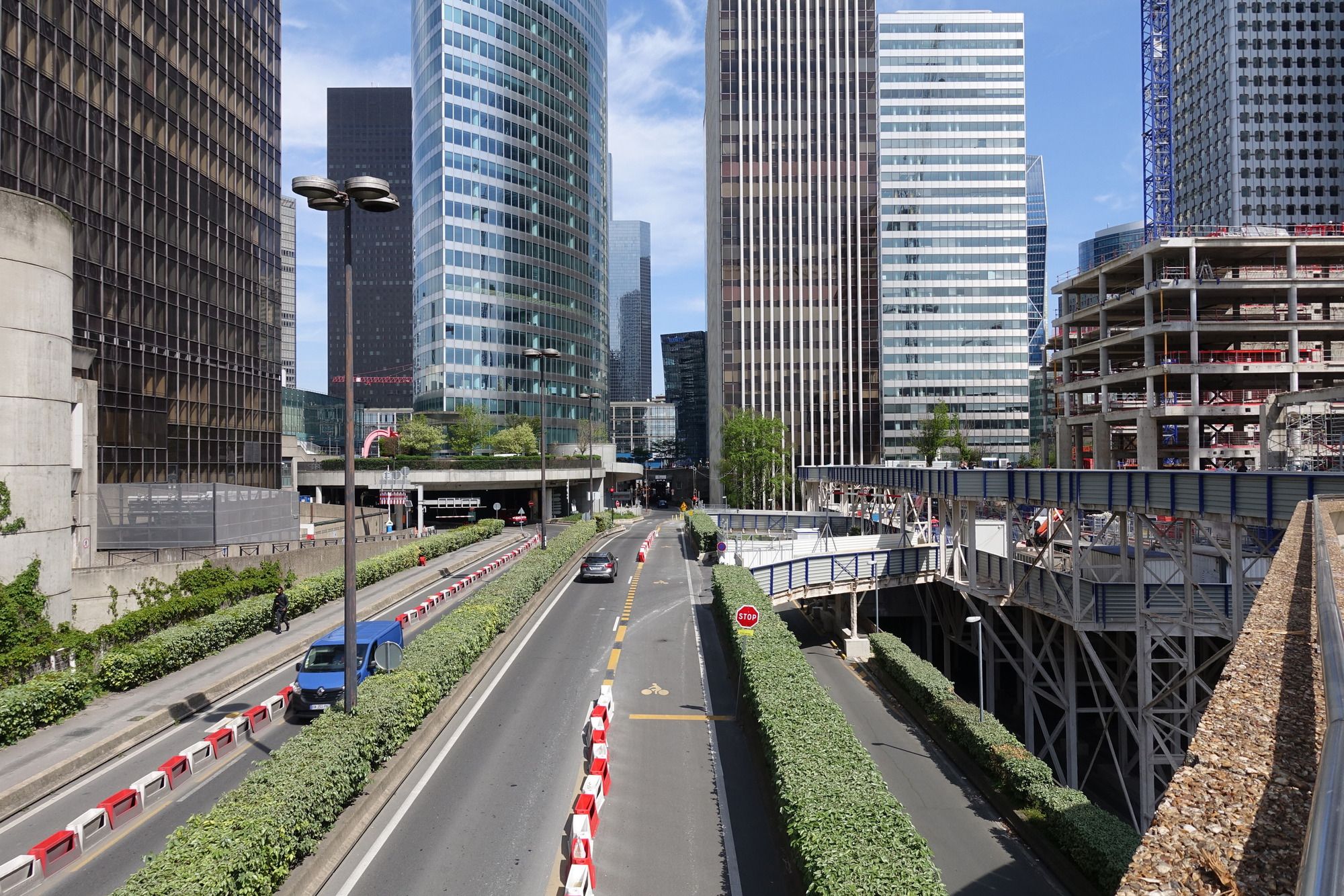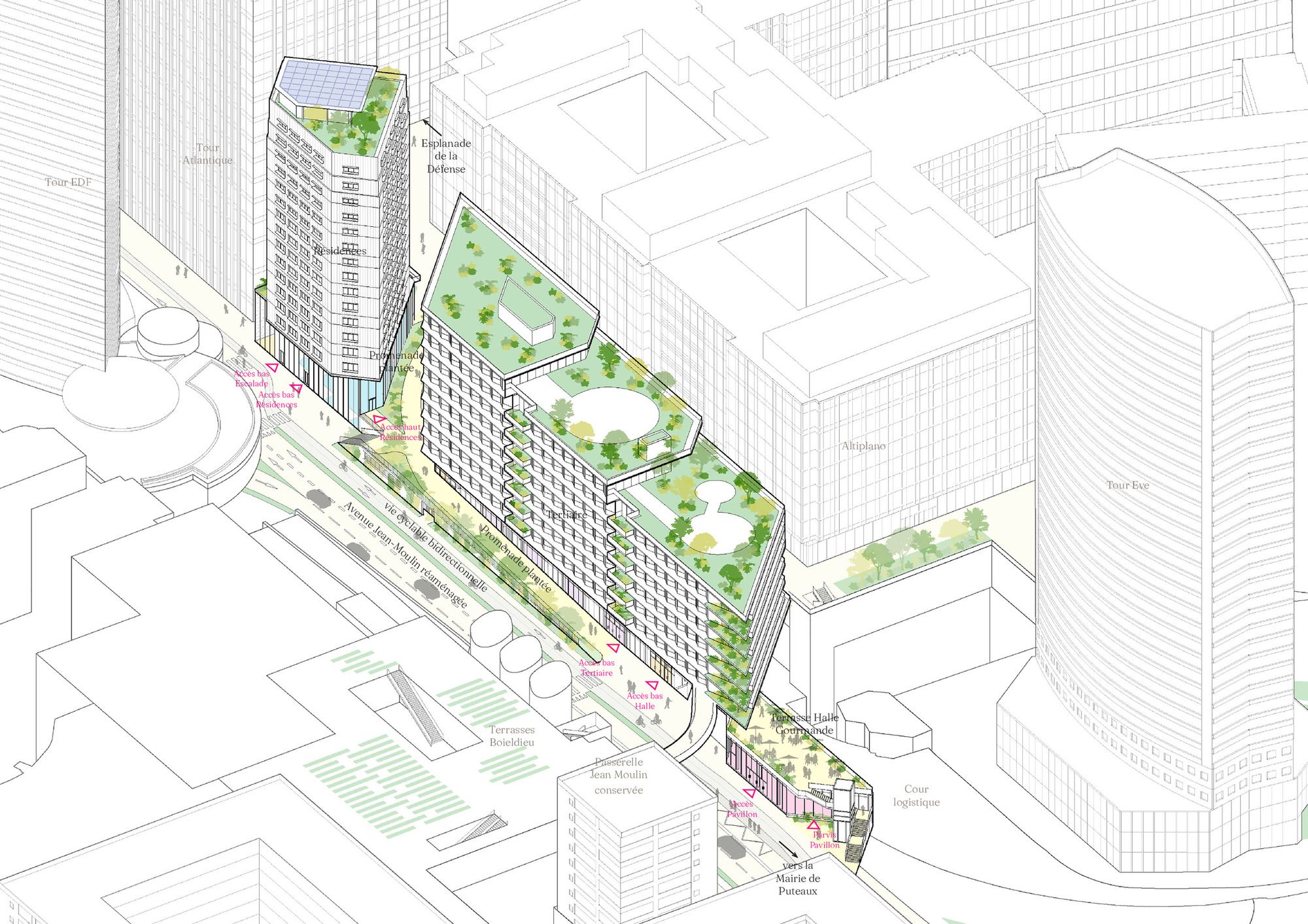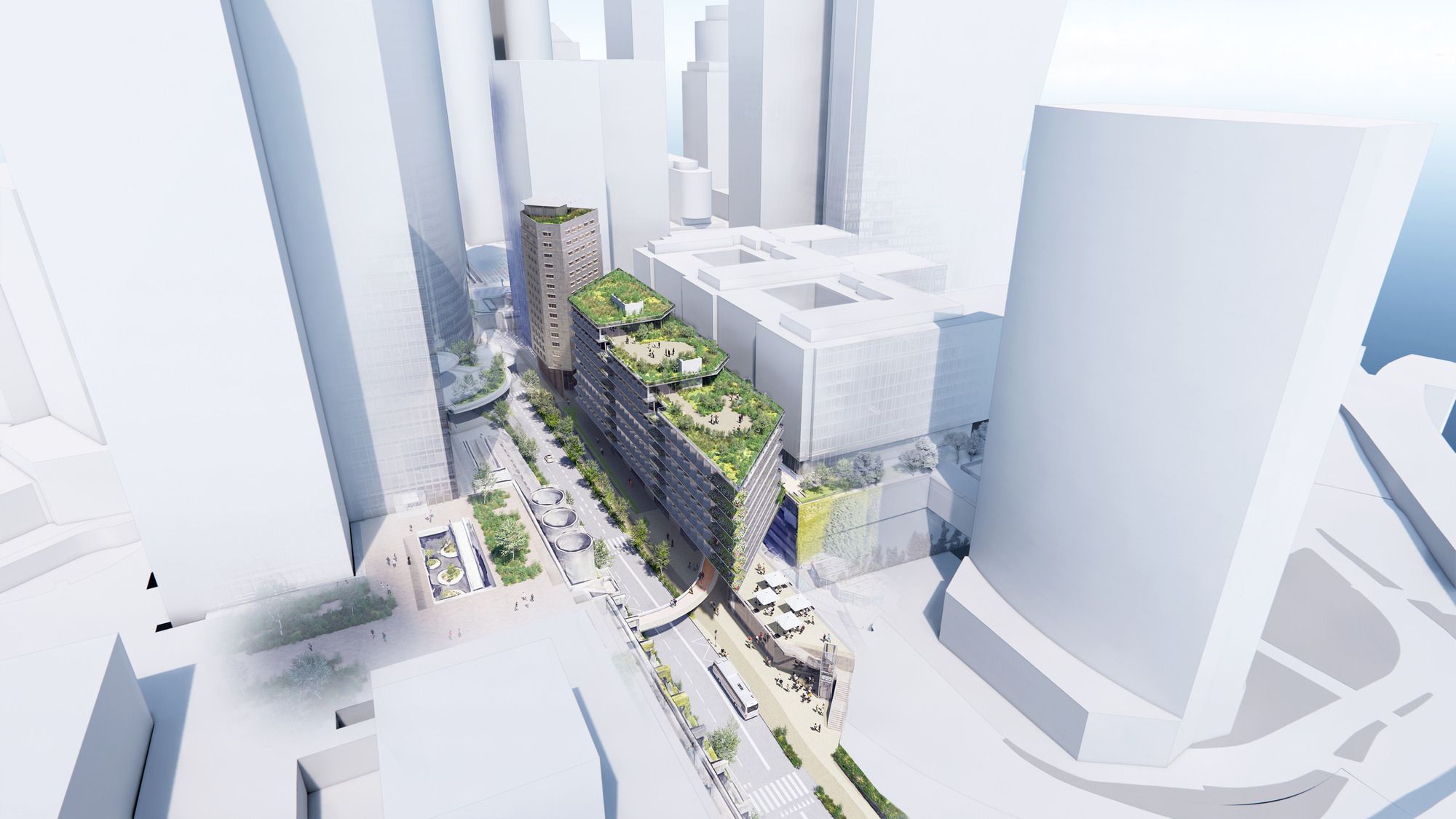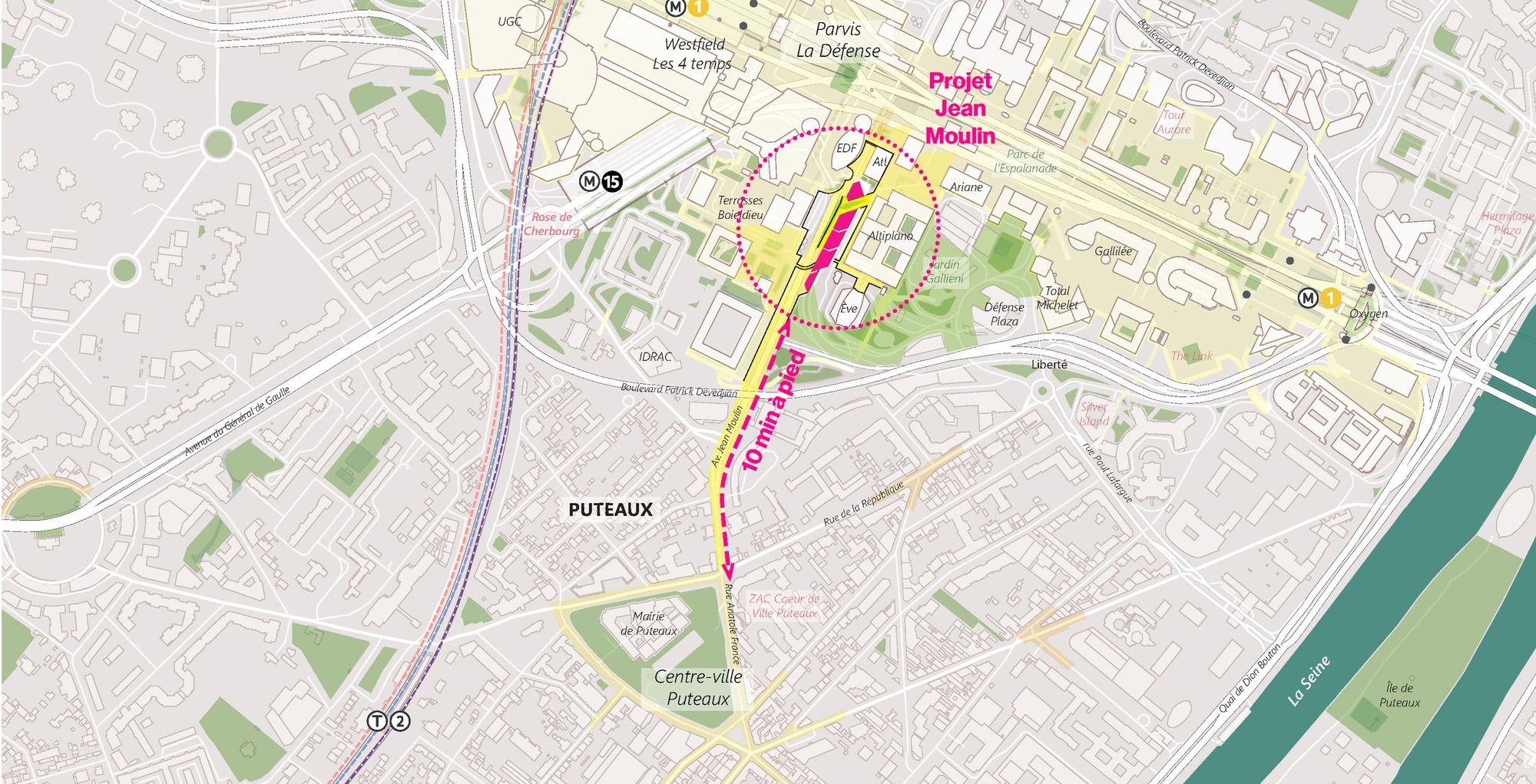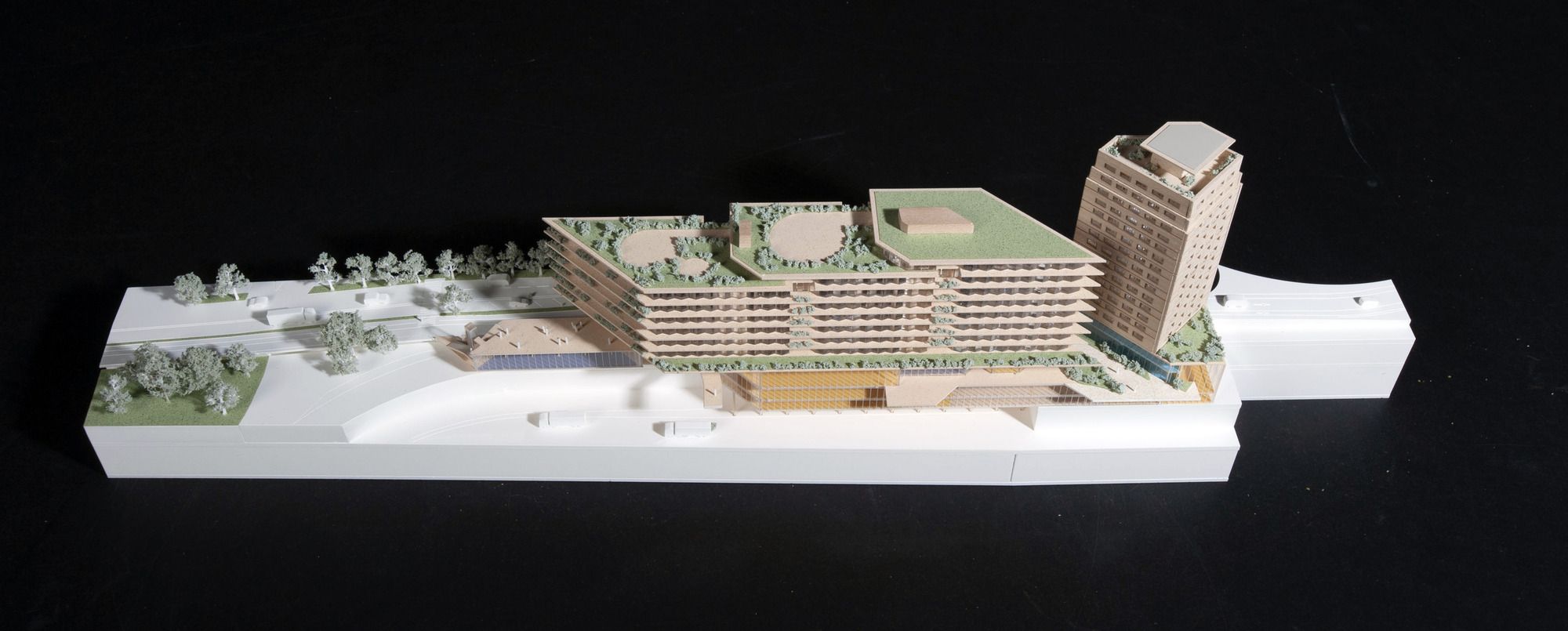RSHP has won the Jean Moulin competition in La Défense, Paris. As a result, they have secured an opportunity to develop a low-carbon mixed-use property. This competition aligns with the “Empreintes” initiative in Paris, which aims to transform the business district into the world’s first post-carbon neighborhood. Jean Moulin is one of five urban sites on the district’s periphery that will undergo a revolutionary transformation. The goal is to create sustainable mixed-use properties, and RSHP is working with neighboring city centers to make this vision a reality.
RSHP has proposed a development plan to revitalize an urban business zone affected by road infrastructure. The proposal includes a mixed-use development and a unique public space. The aim is to connect La Défense to Puteaux’s city center and create a significant social and cultural landmark in the region.
RSHP unveils proposal for “post-carbon” neighbourhood in Paris
The proposed mixed-use development is a two-story structure that aims to serve the recreational, sporting, and entertainment needs of the La Défense neighborhood. The concept is designed to be inclusive, incorporating various amenities such as a food court, an indoor market with a scenic rooftop terrace, a spacious climbing gym, designated yoga areas, a café, and a pavilion for hosting vibrant social and cultural events. The development was created through collaborative efforts with the local community, ensuring that it aligns with the preferences and aspirations of the residents.
A beautiful promenade stretches between Puteaux and the Esplanade de La Défense, featuring several pocket parks and public open spaces. The path is designed to accommodate different modes of transportation, including cycling lanes and pedestrian walkways. Two unique structures anchor the central pathway. One is a tall, slender building dedicated to apartments, while the other is a more extended, lower structure that houses contemporary office spaces. Both structures feature flexible designs and eco-friendly green rooftops.
The Jean Moulin project by RSHP clearly aims to reduce carbon emissions by 50%. This goal covers both operational and embodied carbon considerations. The building designs are carefully planned to make the most of natural elements, optimizing orientation, solar exposure, and access to light and scenic views. The design methodology incorporates innovative energy-sharing strategies and techniques for repurposing technical components. The project emphasizes modularity and prefabricated wood constructions to minimize the initial carbon footprint, reduce construction waste, and minimize disruptions to the local community.
©Metrochrome
©Metrochrome
©Metrochrome
©RSHP
©Metrochrome
©RSHP
©RSHP
©RSHP
©RSHP
©RSHP


